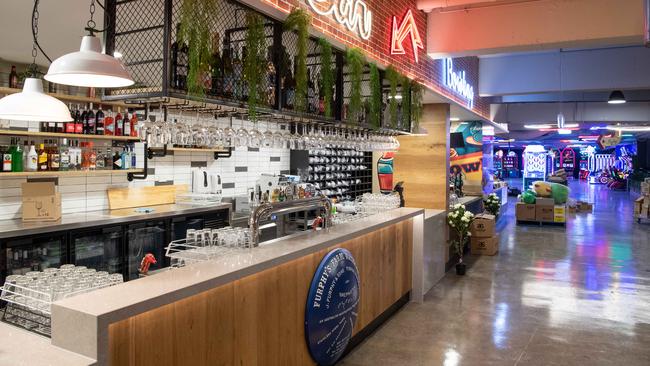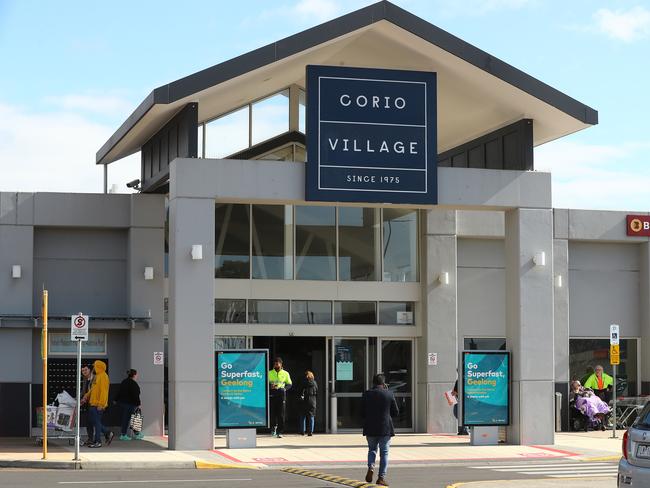Charter Hall makes retail move with $146m swoop on Geelong’s Corio Village
The funds manager is again buying convenience retail assets as it seeks to expand its holdings in the high-performing area.

Business
Don't miss out on the headlines from Business. Followed categories will be added to My News.
Institutions are again putting their stamp on the shopping centre market with Charter Hall buying a complex in the regional Victorian city of Geelong, and further purchases on the cards.
The group has forked out about $146m for Corio Village, finalising a deal to buy the property from funds house IP Generation, which has repositioned the complex.
The purchase of the 33,600sq m shopping centre is part of a broader push by Charter Hall in the convenience retail sector, where it already has substantial holdings.

The centre on the fringe of metropolitan Melbourne is anchored by Coles and Woolworths supermarkets, together with Kmart, six mini-majors and 68 convenience specialty stores.
Charter Hall Retail chief executive Ben Ellis said the company was the largest owner of convenience retail in Australia, with a portfolio of $14bn.
“Charter Hall continues to selectively curate portfolio strategies for its managed funds,” he said.
“We pursued Corio for its anchor supermarket convenience attributes, which reflected a 7 per cent cap rate. Combined with forecast income growth, it’s expected to deliver accretive returns for the partnership.”
Charter Hall chief executive David Harrison added that the company had always had high conviction on convenience retail, and saw it continuing to outperform discretionary retail larger malls.
“We expect convenience retail to deliver leading total returns across all sectors within Australia,” he said.
“The fact that most convenience centres can be acquired at deep discounts to replacement cost is a core value metric we focus on within our selective acquisition program.”.
The off-market sale was handled by Nick Willis and Sam Hatcher from JLL.
Corio Village is the dominant shopping centre in the North Geelong catchment and has around $200m in annual turnover. The deal shows continued investor confidence in subregional shopping centres, driven by their essential role within communities and robust tenant mix.

JLL senior director Nick Willis said that access to high quality subregionals was becoming increasingly constrained as there was a global resurgence in capital demand for the sector.
“This transaction provides evidence of the shifting buyer profile away from the manager/syndicator groups who have led the acquisitions charge over the last 5 years, to now increased participation from institutions and REITs as they shift back to net acquirers,” he said.
JLL’s analysis of the subregional sector highlights that over the last five years the sector has seen volumes of $11.5bn, exceeding all other subsectors.
“The largest acquirer of these assets has been the syndicators who have amassed over 50 per cent of all sub-regionals sold over the same period,” he said.
IP Generation founder Chris Lock said selling Corio Village – after buying it for $101m from retail property company Vicinity Centres in 2019 – marked the completion of a comprehensive asset improvement strategy.
“Through targeted repositioning works, we have successfully transformed the centre into a core convenience hub for the community, while delivering strong outcomes for our investors. We remain focused on the retail sector and continue to seek opportunities,” he said.
JLL head of retail investments Sam Hatcher said that the sector’s improving global narrative was underwritten by strong fundamentals and positive tailwinds, which was driving activity in the retail sector including a growing trend of offshore capital sources re-engaging in the Australian market.
“These trends are expected to continue throughout 2025 as competition to secure assets heightens in a supply-constrained market,” he said.
More Coverage
Originally published as Charter Hall makes retail move with $146m swoop on Geelong’s Corio Village




